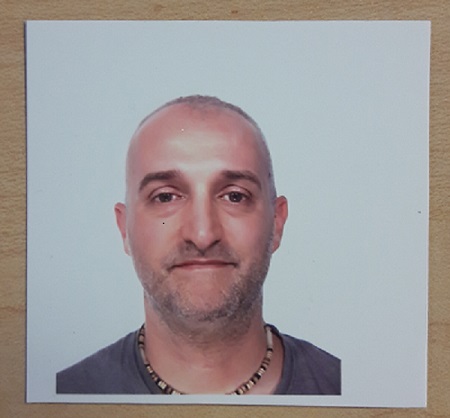Studying at the University of Verona
Here you can find information on the organisational aspects of the Programme, lecture timetables, learning activities and useful contact details for your time at the University, from enrolment to graduation.
Academic calendar
The academic calendar shows the deadlines and scheduled events that are relevant to students, teaching and technical-administrative staff of the University. Public holidays and University closures are also indicated. The academic year normally begins on 1 October each year and ends on 30 September of the following year.
Course calendar
The Academic Calendar sets out the degree programme lecture and exam timetables, as well as the relevant university closure dates..
| Period | From | To |
|---|---|---|
| Sem. 1A | Sep 24, 2018 | Nov 10, 2018 |
| Sem. 1B | Nov 19, 2018 | Jan 12, 2019 |
| Sem. 2A | Feb 18, 2019 | Mar 30, 2019 |
| Sem. 2B | Apr 8, 2019 | Jun 1, 2019 |
| Session | From | To |
|---|---|---|
| Sessione Invernale | Jan 14, 2019 | Feb 16, 2019 |
| Sessione Estiva (Gli esami sono sospesi durante la Sessione di laurea) | Jun 3, 2019 | Jul 27, 2019 |
| Sessione Autunnale | Aug 26, 2019 | Sep 21, 2019 |
| Session | From | To |
|---|---|---|
| Sessione Estiva | Jul 8, 2019 | Jul 13, 2019 |
| Sessione Autunnale - Servizio Sociale | Nov 8, 2019 | Nov 8, 2019 |
| Sessione Invernale | Mar 30, 2020 | Apr 4, 2020 |
| Period | From | To |
|---|---|---|
| Festa di Ognissanti | Nov 1, 2018 | Nov 1, 2018 |
| Festa dell’Immacolata | Dec 8, 2018 | Dec 8, 2018 |
| Vacanze di Natale | Dec 22, 2018 | Jan 6, 2019 |
| Vacanze di Pasqua | Apr 19, 2019 | Apr 23, 2019 |
| Festa della liberazione | Apr 25, 2019 | Apr 25, 2019 |
| Festa del lavoro | May 1, 2019 | May 1, 2019 |
| Festa del Santo Patrono - S. Zeno | May 21, 2019 | May 21, 2019 |
| Festa della Repubblica | Jun 2, 2019 | Jun 2, 2019 |
| Vacanze Estive | Aug 12, 2019 | Aug 17, 2019 |
Exam calendar
Exam dates and rounds are managed by the relevant Humanistic Studies Teaching and Student Services Unit.
To view all the exam sessions available, please use the Exam dashboard on ESSE3.
If you forgot your login details or have problems logging in, please contact the relevant IT HelpDesk, or check the login details recovery web page.
Should you have any doubts or questions, please check the Enrollment FAQs
Academic staff
 stefania.annechini@univr.it
stefania.annechini@univr.it
 roberto.dallachiara@univr.it
roberto.dallachiara@univr.it
 giorgia.decarli@univr.it
giorgia.decarli@univr.it
 annamaria.giarola@univr.it
annamaria.giarola@univr.it
 luciano.pasqualotto@univr.it
luciano.pasqualotto@univr.it
Povolo Luciana
 antonella.salvan@univr.it
antonella.salvan@univr.it
 carlo.soregotti@univr.it
carlo.soregotti@univr.it
 giorgio.zoccatelli@univr.it
giorgio.zoccatelli@univr.it
Study Plan
The Study Plan includes all modules, teaching and learning activities that each student will need to undertake during their time at the University.
Please select your Study Plan based on your enrollment year.
1° Year
| Modules | Credits | TAF | SSD |
|---|
2° Year activated in the A.Y. 2019/2020
| Modules | Credits | TAF | SSD |
|---|
3° Year activated in the A.Y. 2020/2021
| Modules | Credits | TAF | SSD |
|---|
1 module to be chosen among the following| Modules | Credits | TAF | SSD |
|---|
| Modules | Credits | TAF | SSD |
|---|
| Modules | Credits | TAF | SSD |
|---|
1 module to be chosen among the followingLegend | Type of training activity (TTA)
TAF (Type of Educational Activity) All courses and activities are classified into different types of educational activities, indicated by a letter.
Special Pedagogy (2018/2019)
Teaching code
4S000588
Teacher
Coordinator
Credits
6
Language
Italian
Scientific Disciplinary Sector (SSD)
M-PED/03 - METHODOLOGIES OF TEACHING AND SPECIAL EDUCATION
Period
Sem. 1B dal Nov 19, 2018 al Jan 12, 2019.
Learning outcomes
Knowledge and understanding
- Knowledge and understanding of the determinants of bio-psycho-social well being (with particular regard to the main social problems often faced by social workers)
Ability to apply Knowledge and understanding
- Ability to recognize the main causes of people needs and distinguish among their social, familiar and personal roots.
SPECIFIC OBJECTIVES
By the end of the course, students will have acquired knowledge regarding the main pedagogical theories which have inspired special education; knowledge regarding the different ways of projecting an intervention in the field of special education; knowledge regarding the different special education needs and the ways through which it is possible to early intercept them in order to project inclusive educative interventions; skills regarding how to act in accordance with the professional profile of an educator operating in those contexts providing special education.
Program
The course contributes to the formation of those pedagogical and educational skills that are a constituent part of the professionalism of the Social Workers.
In particular, the Special Pedagogy course aims to provide knowledge (applying knowledge and understanding) for analysis and intervention, from the pedagogical point of view, in disability, addictions and other forms of social marginality, including juveniles, according to a bio-psycho-social perspective and in the perspective of Community Welfare.
At the end of the course, the participants will be able to demonstrate:
• knowing how to use the concept of functioning (according to the ICF classification) for the analysis of the special needs of the person in a condition of disability / dependence / marginality and the search for a better quality of life;
• be able to define some intervention objectives, according to an evidence based logic, within the individual project envisaged by Law no. 328/00 (Article 14).
• distinguish the outputs, outcomes and impacts of social work, with an initial orientation to evaluation models and tools;
• to know the main application implications of the paradigm of social generativity in social work.
General contents
1. The multidimensional bio-psycho-social perspective according to the declination of the World Health Organization (ICF)
2. Disability and dependencies: international definitions, normative references
3. ICF and Quality of Life: comparison models for needs assessment and definition of interventions
4. Evaluation of performance, outcomes and impacts: methodology and tools in working with fragile citizens according to an evidence based logic
5. The paradigm of social generativity in the intervention in favor of people with disabilities and other fragilities
6. Individual project and life project: from needs to objectives, to context planning, to evaluation of results.
| Author | Title | Publishing house | Year | ISBN | Notes |
|---|---|---|---|---|---|
| Caldin, R. (a cura di) | Disabilità, famiglie e servizi. Impegni di alleanza, esperienze di valutazione | Edizioni del Rosone | 2017 | 9788833350035 | Da studiare: prima parte capitoli 2, 6, 7, 9; seconda parte capitolo 2. |
| Pasqualotto, L. | ICF-Dipendenze. Un set di strumenti per programmare e valutare la riabilitazione nelle dipendenze patologiche | Erickson | 2016 | 9788859010814 | |
| Pasqualotto, L. | La valutazione multidimensionale e il progetto personalizzato. Prospettive e strumenti per educatori e operatori dei Servizi per la Disabilità Adulta | Erickson | 2014 | 9788859007258 | |
| Pasqualotto, L. | Rendere generativo il lavoro sociale. Guida per operatori e amministratori locali (Edizione 1) | La Meridiana | 2016 | 9788861535862 |
Examination Methods
The knowledge will be verified through a written test aimed at ascertaining the achievement of the learning objectives. The exam will be structured in 30 multiple choice and / or open questions regarding the books indicated. For each correct answer, 1/30 points will be awarded. This assessment can be used for any exercises carried out by the trainee individually or in a small group.
The teacher reserves the right to allow oral integration of the written exam.
The exam procedures are not differentiated between attending and non-attending students.
Type D and Type F activities
Modules not yet included
Career prospects
Module/Programme news
News for students
There you will find information, resources and services useful during your time at the University (Student’s exam record, your study plan on ESSE3, Distance Learning courses, university email account, office forms, administrative procedures, etc.). You can log into MyUnivr with your GIA login details: only in this way will you be able to receive notification of all the notices from your teachers and your secretariat via email and soon also via the Univr app.
Student mentoring
Linguistic training CLA
Gestione carriere
Practical information for students
Documents
| Title | Info File |
|---|---|
|
|
pdf, it, 325 KB, 02/05/23 |
|
|
pdf, it, 212 KB, 02/05/23 |
|
|
pdf, it, 131 KB, 02/05/23 |
Graduation
Documents
| Title | Info File |
|---|---|
|
|
pdf, it, 99 KB, 13/10/23 |
|
|
pdf, it, 101 KB, 10/04/24 |
List of theses and work experience proposals
| theses proposals | Research area |
|---|---|
| Proposta tesi | Various topics |
Assistente Sociale
Comune e Università di Verona collaborano per la formazione alla professione di assistente sociale.
Professione Assistente Sociale
Pagina aggiornata il 18/1/2022
Stage e Tirocini
Le attività̀ di tirocinio degli studenti si svolgono presso strutture esterne, convenzionate con l’Università degli Studi di Verona ai sensi delle vigenti disposizioni in materia. Nelle strutture esterne gli studenti svolgono le attività di tirocinio sotto la responsabilità di un assistente sociale (Tutor-supervisore), appartenente a dette strutture, coordinato a sua volta dal responsabile del tirocinio presso il Corso di Studio.
In assenza di un assistente sociale, operante nella struttura esterna, il Collegio didattico, per quanto di competenza, decide, su proposta dei responsabili del tirocinio, in ordine alle condizioni per l’effettuazione o la prosecuzione delle attività di tirocinio degli studenti interessati. Le attività di tirocinio sono obbligatorie per almeno 450 ore.
Il Collegio didattico, in deroga alle disposizioni del presente articolo, può consentire a studenti che si trovino in particolari condizioni, in specie se disabili, lavoratori o impegnati in organismi collegiali dell’Università degli Studi di Verona, di non ottemperare in parte all’obbligo di frequenza alle attività di tirocinio, predisponendo forme alternative di tirocinio, anche tramite supporti telematici e multimediali interattivi.
I responsabili delle attività di tirocinio presso il Corso di Studio, anche avvalendosi di appositi collaboratori o tutori esterni, accertano la presenza degli studenti presso le rispettive strutture. A tal fine utilizzano un apposito libretto di frequenza per ciascuno studente.
Al termine dell’attività di tirocinio, lo studente deve presentare una relazione scritta al responsabile di tale attività presso il Corso di Studio. Lo studente elabora la relazione scritta, controfirmata dal Tutor-supervisore. La relazione finale viene valutata dal responsabile del tirocinio presso il Corso di Studio e deve tenere conto degli obiettivi prefissati dal Collegio didattico.
La valutazione viene attribuita al tirocinio nel seguente modo: sufficiente = 1; buono = 2; ottimo = 3; eccellente = 4 e verrà aggiunta alla media dei voti del curriculum al momento della discussione della tesi.
Gli Uffici della Direzione Didattica e Servizi agli Studenti predispongono la documentazione necessaria allo svolgimento delle attività̀ di tirocinio, comprese attestazioni e certificazioni.
Nel caso in cui lo studente partecipi a programmi di mobilità internazionale, le attività̀ di tirocinio vengono regolamentate come segue:
A – Lo studente svolge il Tirocinio presso la sede estera.
Se lo studente svolge il Tirocinio all’estero si ritengono assolti gli obbligo relativi al Laboratorio se:
- - lo studente aggiorna il proprio docente/tutor con brevi relazioni mensili da inviare mezzo mail, sull’andamento del lavoro svolto presso la sede estera;
- - produce una relazione finale completa del tirocinio svolto.
La valutazione finale del laboratorio di guida al tirocinio sarà̀ effettuata da parte del tutor del laboratorio sulla base della relazione dello studente tenendo conto della eventuale valutazione da parte del supervisore estero.
B – Lo studente non svolge il Tirocinio presso la sede estera.
Se lo studente non svolge il Tirocinio nella sede estera e lo deve fare al rientro:
lo studente effettua uno/due incontri individuali iniziali con il docente/tutor in cui predisporre quanto necessita per l’avvio del tirocinio e nei quali verranno forniti materiali, griglie ed eventuali testi di riferimento;
invia brevi relazioni mensili sull’andamento del tirocinio che sarà svolto in Italia al di fuori del periodo in cui si tiene il laboratorio di guida al tirocinio;
produce la relazione finale completa del tirocinio svolto”.
- Tutte le informazioni in merito agli stage per futuri studenti sono disponibili alla pagina Stage e tirocini.
- Tutte le informazioni in merito agli stage per studenti iscritti sono pubblicate in MyUnivr - come fare per - stage e tirocini.
- Tutte le informazioni in merito agli stage per le aziende sono disponili alla pagina Stage e tirocini per azienze.

 045/802.8621
045/802.8621




















